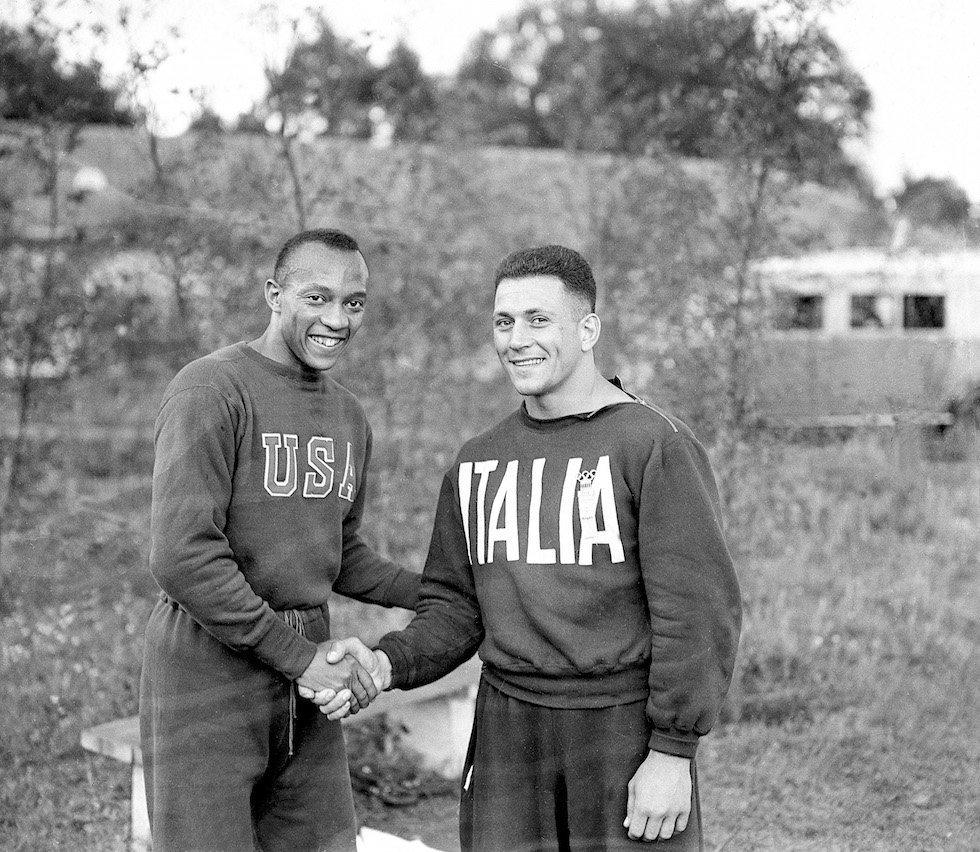On this day, September 13, 1913, James Cleveland “Jesse” Owens was born in Oakville, Alabama.
The youngest of 10 children, Jesse was born to sharecroppers Henry and Emma Owens. Jesse’s spectacular life began in the deep South under the shadow of Jim Crow laws. At nine years old, his family joined the Great Migration, moving north to Cleveland, Ohio, in search of better opportunities. It was in Cleveland that the boy nicknamed “J.C.” first discovered his gift for running.
Owens’s journey into athletics was almost accidental. His speed caught the eye of Charles Riley, a junior high school coach who encouraged him to join track. It was Riley who began shaping the young sprinter’s talent, nurturing the discipline and form that would one day make Owens the fastest man in the world.
By the time Owens attended East Technical High School, he was breaking records in the 100-yard dash and the long jump, earning him national attention.
At Ohio State University, Owens became known as the “Buckeye Bullet.” Despite being a star athlete, he still faced the harsh realities of segregation and he was barred from campus housing and forced to eat at “colored-only” restaurants while traveling. Yet his talent was undeniable. In 1935, Owens achieved what many still call the “greatest 45 minutes in sports.” He would attend a Big Ten meet in Ann Arbor, Michigan, where he set three world records and tied a fourth in under an hour.
This achievement is one that is yet to be beaten to this day.

Owens’s career came at the 1936 Summer Olympics in Berlin, Germany. With Adolf Hitler attempting to showcase Aryan supremacy, Owens delivered a stunning rebuke by winning four gold medals—in the 100 meters, 200 meters, long jump, and 4×100-meter relay, cementing his legacy as a symbol of resistance against racism and fascism.
Despite his Olympic success, Owens returned to a segregated America that offered him little support. Denied opportunities befitting his accomplishments, he worked odd jobs, raced against horses for money and became a public speaker.
“So I sold myself into a new kind of slavery. I was no longer a proud man who had won four Olympic gold medals. I was a spectacle, a freak who made his living by competing, dishonestly, against dumb animals.” — Jesse Owens
Over time, however, he emerged as a respected ambassador for athletics and racial equality. In 1976, President Gerald Ford awarded him the Presidential Medal of Freedom, and after his death in 1980, President George H.W. Bush honored him with the Congressional Gold Medal.
Owens was hospitalized in December 1979 with a highly aggressive and drug-resistant type of lung cancer. He succumbed to the disease at age 66 in Tucson, Arizona, on March 31, 1980.